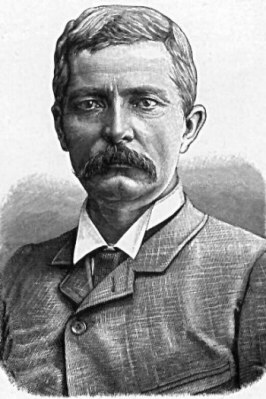Scramble for Africa
Scramble for Africa refers to the period between 1881 and 1914, during which European powers rapidly colonized the African continent. This era was characterized by intense competition among European nations for territory in Africa, driven by economic, political, and strategic motives. The scramble was precipitated by several factors, including the decline of the slave trade, the industrial revolution in Europe, and advances in exploration and military technology.
Background[edit | edit source]
The Industrial Revolution in Europe led to increased demand for raw materials and new markets for manufactured goods. At the same time, advances in navigation, medicine, and military technology made it easier for Europeans to explore and establish control over vast territories. The decline of the slave trade shifted European interests in Africa from the coast to the interior, where they sought new sources of wealth.
Berlin Conference[edit | edit source]
The competition for African territories among European powers threatened to lead to conflict. To avoid this, the Berlin Conference was convened in 1884-1885, where European nations agreed on rules for the colonization of Africa. The conference established that European claims to African territory had to be backed by effective occupation in order to be recognized by other powers. This led to a rush by European countries to establish their presence in Africa.
Impact on Africa[edit | edit source]
The Scramble for Africa had profound effects on the continent. Traditional African societies were disrupted, borders were drawn without regard to ethnic or cultural divisions, and economic exploitation was widespread. The colonization process often involved violence, including military conquest and suppression of African resistance.
Major Players[edit | edit source]
The major European powers involved in the Scramble for Africa included the United Kingdom, France, Germany, Belgium, Italy, Portugal, and Spain. Each had different motivations and adopted various strategies for establishing and maintaining their colonies.
End of the Scramble[edit | edit source]
The Scramble for Africa effectively ended by the outbreak of World War I in 1914, by which time most of the continent was under European control. The legacy of this period, however, continued to affect the political, economic, and social development of African countries long after their independence.
Decolonization[edit | edit source]
The process of decolonization began in the mid-20th century, as African nations started to gain independence from European powers. This was often achieved through a combination of political negotiation and armed struggle.
Legacy[edit | edit source]
The Scramble for Africa left a lasting legacy on the continent, including arbitrary borders, economic dependency, and political instability. It also had a significant impact on the development of European economies and contributed to the tensions that led to World War I.
Search WikiMD
Ad.Tired of being Overweight? Try W8MD's NYC physician weight loss.
Semaglutide (Ozempic / Wegovy and Tirzepatide (Mounjaro / Zepbound) available. Call 718 946 5500.
Advertise on WikiMD
|
WikiMD's Wellness Encyclopedia |
| Let Food Be Thy Medicine Medicine Thy Food - Hippocrates |
Translate this page: - East Asian
中文,
日本,
한국어,
South Asian
हिन्दी,
தமிழ்,
తెలుగు,
Urdu,
ಕನ್ನಡ,
Southeast Asian
Indonesian,
Vietnamese,
Thai,
မြန်မာဘာသာ,
বাংলা
European
español,
Deutsch,
français,
Greek,
português do Brasil,
polski,
română,
русский,
Nederlands,
norsk,
svenska,
suomi,
Italian
Middle Eastern & African
عربى,
Turkish,
Persian,
Hebrew,
Afrikaans,
isiZulu,
Kiswahili,
Other
Bulgarian,
Hungarian,
Czech,
Swedish,
മലയാളം,
मराठी,
ਪੰਜਾਬੀ,
ગુજરાતી,
Portuguese,
Ukrainian
Medical Disclaimer: WikiMD is not a substitute for professional medical advice. The information on WikiMD is provided as an information resource only, may be incorrect, outdated or misleading, and is not to be used or relied on for any diagnostic or treatment purposes. Please consult your health care provider before making any healthcare decisions or for guidance about a specific medical condition. WikiMD expressly disclaims responsibility, and shall have no liability, for any damages, loss, injury, or liability whatsoever suffered as a result of your reliance on the information contained in this site. By visiting this site you agree to the foregoing terms and conditions, which may from time to time be changed or supplemented by WikiMD. If you do not agree to the foregoing terms and conditions, you should not enter or use this site. See full disclaimer.
Credits:Most images are courtesy of Wikimedia commons, and templates, categories Wikipedia, licensed under CC BY SA or similar.
Contributors: Prab R. Tumpati, MD





